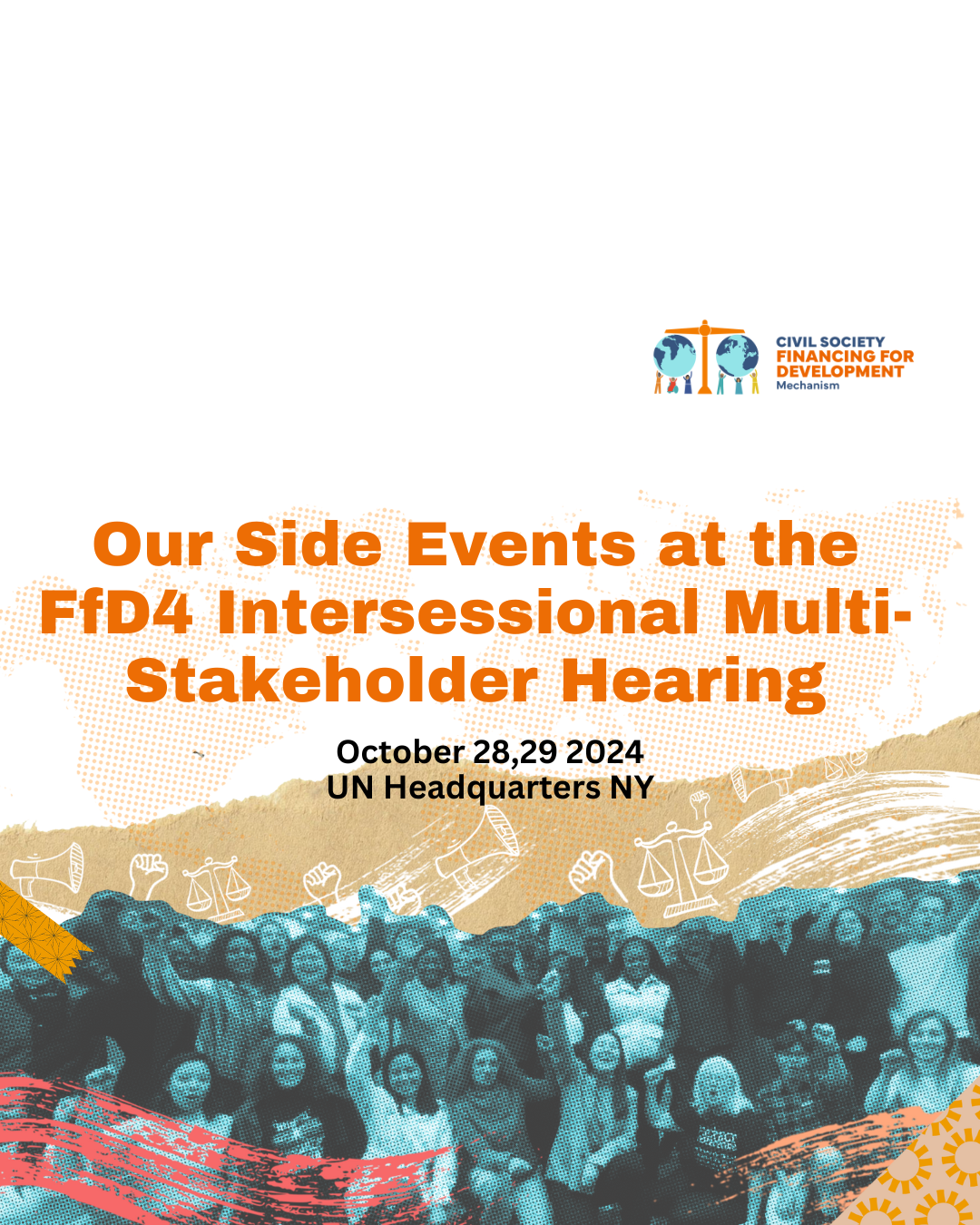
Letter to the Members of the Working Group on Measurement of Development Support, IAEG-SDGs
Letter by the Civil Society Financing for Development Group to the Members of the Working Group on Measurement of Development Support.
You can download the letter here:
To, Members of the Working Group on Measurement of Development Support, IAEG-SDGs
Cc: Members of the IAEG-SDGs
Mr. Navid Hanif, Director, UNDESA Financing for Sustainable Development Office
Dr. Chantal Line Carpentier, Chief, UNCTAD New York Office
Permanent Representatives and Observers to the United Nations in New York
14 September 2021
Re: Feedback on the draft proposal for a new indicator under SDG Target 17.3
Your excellencies,
We, the Civil Society Financing for Development Group, representing a wide range of organizations, federations and networks from diverse regions and constituencies around the world (including the Women’s Working Group on Financing for Development), respectfully submit some inputs on the draft proposal for a new indicator under SDG Target 17.3 “Mobilize additional financial resources for developing countries from multiple sources”. These inputs have also been shared through the formal consultation process in August 2021.
Considering several developing countries and CSOs have consistently raised concerns over any new approach that masks the failure of donors to meet their aid targets, we call on the members of the working group to evaluate this draft proposal carefully to avoid risks of over-estimation or inflation. Where the goal is only transparency in flows or data, that is better served through a separate transparency initiative in the UN Development Cooperation Forum, rather than being included in an indicator whose political goal is to accurately measure contribution to sustainable development. This exercise should be careful to not conflate these goals.
Our concerns:
• We have concerns with a lender-centric approach of this proposed new indicator. While
fraught with technical difficulty, it is important that validation by recipient country is elevated to an eligibility criterion. Additionally, there should be transparency and clarity on how the objective of assigning SDG target and/or national developmental objectives is done to address risks of over-estimation.
• Official concessional sustainable development loans: We have concerns with inclusion of gross flows, which do not take into account repayments by recipients. We prefer for this sub-indicator to clearly expose net flows pending necessary agreement on an adequate grant equivalency approach. We invite the IAEG members to explore further work towards finding agreement on appropriate definition of concessionality that avoids risks of over-estimation or under-estimation.
• Official non-concessional sustainable development loans: We have concerns with this
inclusion as these loans, even if official, are equivalent to commercial loans that require full repayment at market rates. CSOs have consistently flagged concerns with inflating numbers with non-concessional flows that undermines aid targets.
• We have also been calling for development finance to be in the form of grants and not loans, which exacerbates the debt crises in several developing countries, undermining sustainable development.
• Foreign Direct Investment (FDI): We have concerns with the inclusion of FDI considering the significant statistical and data challenges to measure the contribution of FDI to sustainable development, particularly given the difficulty of separating clearly between real economy investments and financial speculative flows, and transparency in the development objectives of FDI. There are also significant challenges in many countries of ‘round tripping’ of domestic illicit wealth as ‘FDI’. This is not merely an issue of national statistical capacity but requires international action to address loopholes in the international tax system. Methodologies for resolving these issues are not yet developed, and as such the inclusion of FDI will undermine the credibility of the indicator.
• MPF: We have consistently raised concerns with MPF and the challenge of measuring, tracking and assessing development results. This also risks being another provide-centric indicator, considering the significant challenges in verifying these flows and assessing their developmental impact by recipients. Furthermore, risks such as worsening the quality of country programmable aid and increasing the debt burden of developing countries have also been acknowledged, further undermining sustainable development goals.
• Private grants: Along with data access and quality issues given the large numbers and wide range of private not-for-profit actors, we have concerns related to CSO space. Private grants are often the only funding source available to groups and communities not aligned with the national governments’ or major donors’ interest.
We agree with the exclusion of debt relief, in donor refugee costs, admin costs (not allocated), non-ODA peace, security expenditures, private non concessional loans, portfolio investments, export credits and short term flows.
We also strongly support UNCTAD to be custodian of the entire indicator to ensure credibility. There are significant political risks with this indicator being donor-driven and UNCTAD’s role is critical to ensure balance and that recipient interests are represented. The indicator also needs significant cross-sectoral expertise particularly on issues such as debt and FDI to carefully evaluate sustainable development criterion.
We remain at your disposal for any necessary clarifications and look forward to constructively engaging in this process.
Sincerely yours,
Civil Society Financing for Development Group (www.csoforffd.org)
(including the Women’s Working Group on Financing for Development
Related Updates


